Dawn Chorus – Meet the Band | Blog
Rural quiet or city streets, wherever each of us resides at this uncertain time, there is one thing we can all share by simply stepping outside, or opening our windows; the dawn chorus. While the birdsong resonates around The Lakes, Heather Dewey from RSPB Haweswater introduces a merry band you’ll hear both here and across the UK.
The dawn air is cool, still and thin. Sound travels with ease through the landscape, uncluttered by the muffling noise and heat that the day brings. As the first golden streaks of sunlight reach towards the ground, the masterpiece begins…
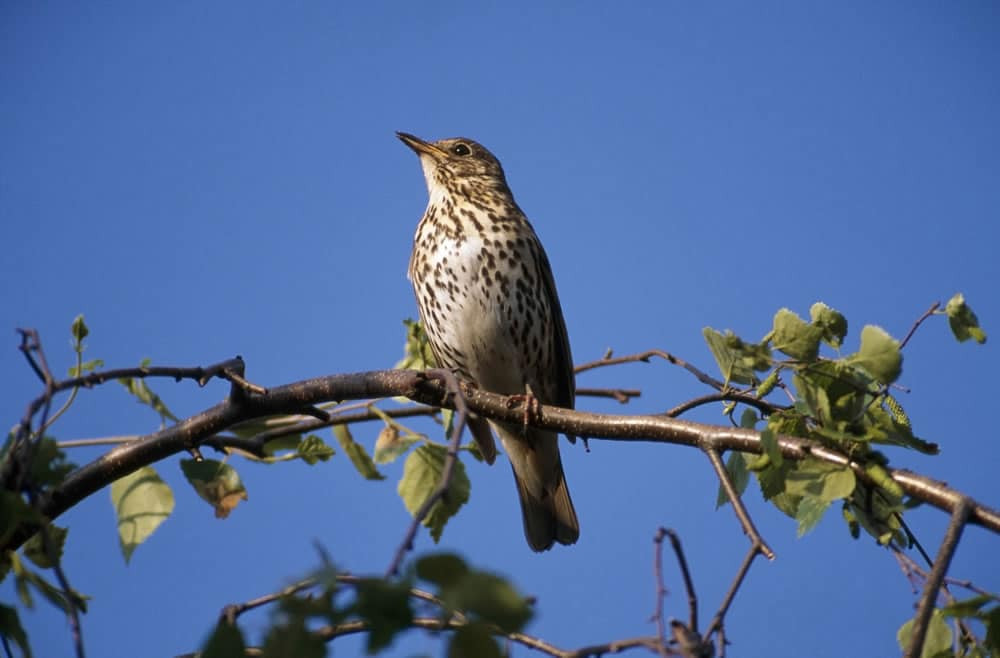
Song Thrush – the dramatic storyteller
The Song Thrush has storyteller-like abilities; pitch and speed is varied, and as with any absorbing tale, pauses for dramatic effect throughout. Fluting notes are quickly contrasted by harsh, shrill repetitions – like unexpected sound effects. With the mimicry of other species featuring too, our storyteller is a master at character impressions. Song Thrushes, quite rightly, proudly share their theatrical display from the highest point they can find; usually the top of a tree, or even a chimney.
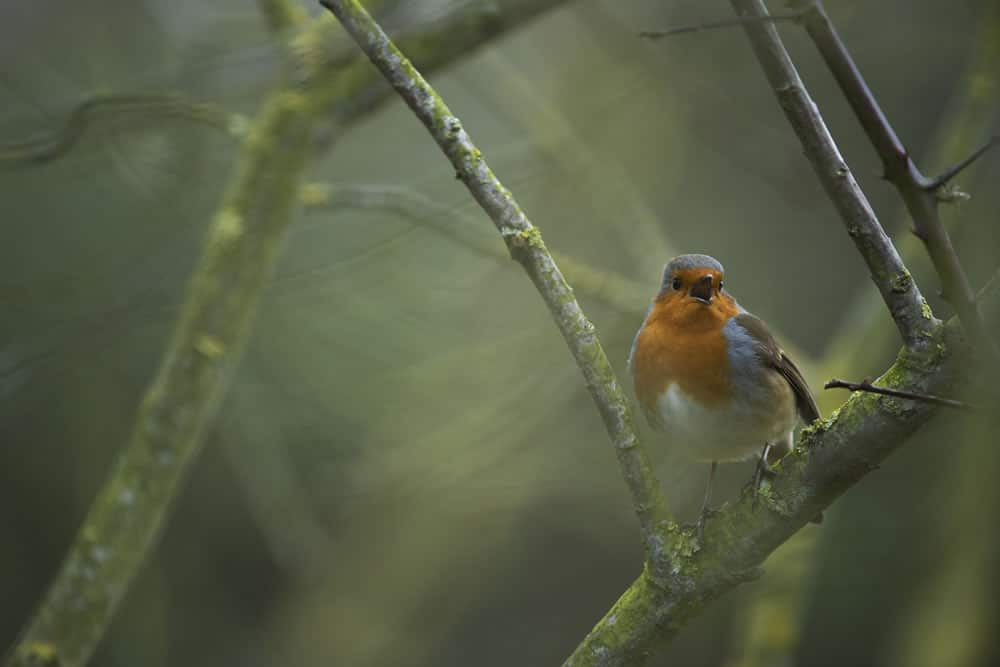
Robin – the underrated background singer
When you’re washing your hair, or brushing your teeth, do you ever dip in and out of a song that’s been stuck in your head all morning? The Robin’s call is beautiful; musical, delightful and light, but he teases us with it, giving us short bursts of song with steady pauses in between, always leaving us wanting more. Robins can be observed singing within the branches of trees and tall shrubs, but are called a gardener’s best friend for good reason – they’re regularly found hopping on fences or tables, especially when you have so kindly turned the soil for them.
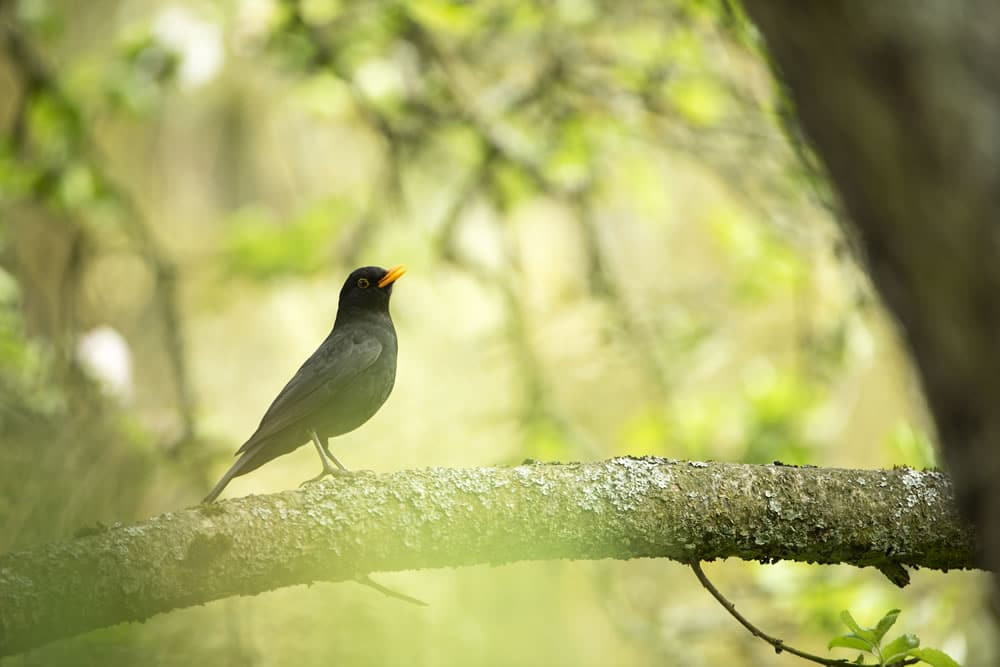
Blackbird – the Sunday morning whistler
Famously known for ‘singing in the dead of night’, with thanks to The Beatles, Blackbirds display night-singing behaviour most often by street lights or in lit-up urban areas. When not sharing moonlit serenades, Blackbirds are one of the first to call during the dawn chorus, along with other species described here. Blackbird song is akin to someone leisurely whistling a tune, considerate with every note, and steadily dipping in and out of their favourite verses in a rich and melodic way. It’s deeper and slower than the song of the Robin, and most enjoyable to tune in to.
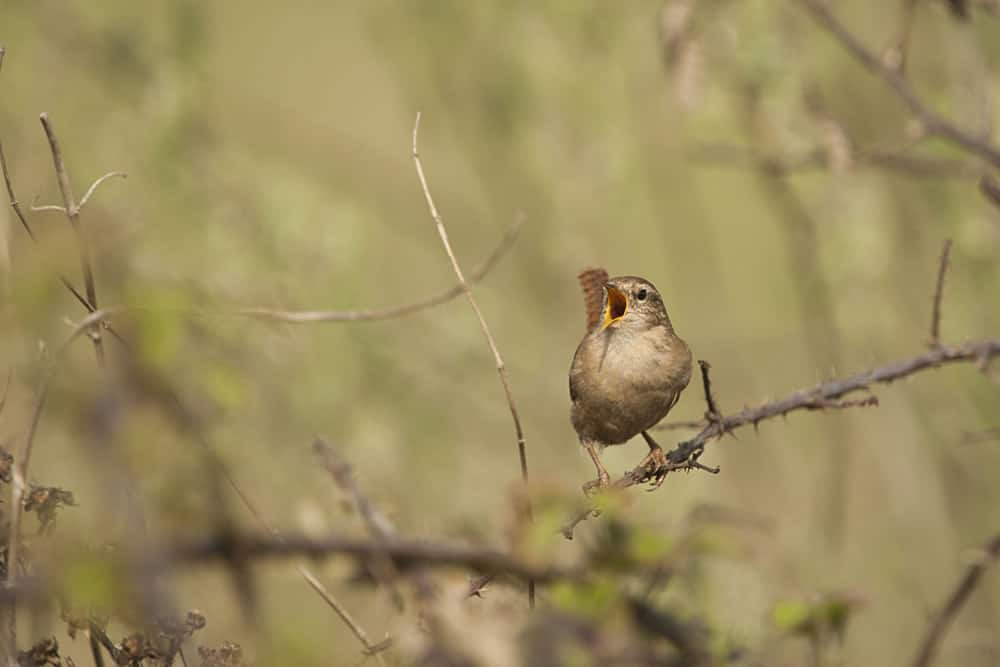
Wren – the unexpected superstar
Don’t let the Wren’s 9 gram, petite figure fool you; this bird can pack a surprise punch of birdsong during the dawn chorus. The Wren’s song is a flurry of pleasant bubbling; high pitched and regular, with verses often repeated, or at least in part. You can rely on the Wren to maintain a similar identifying tune, though he may share his ‘subsong’ during a chorus; quieter, but by no means less elaborate. Wren song is higher pitched than the other species in this list, and can often be heard coming from low shrubs – from which they shyly hop between.
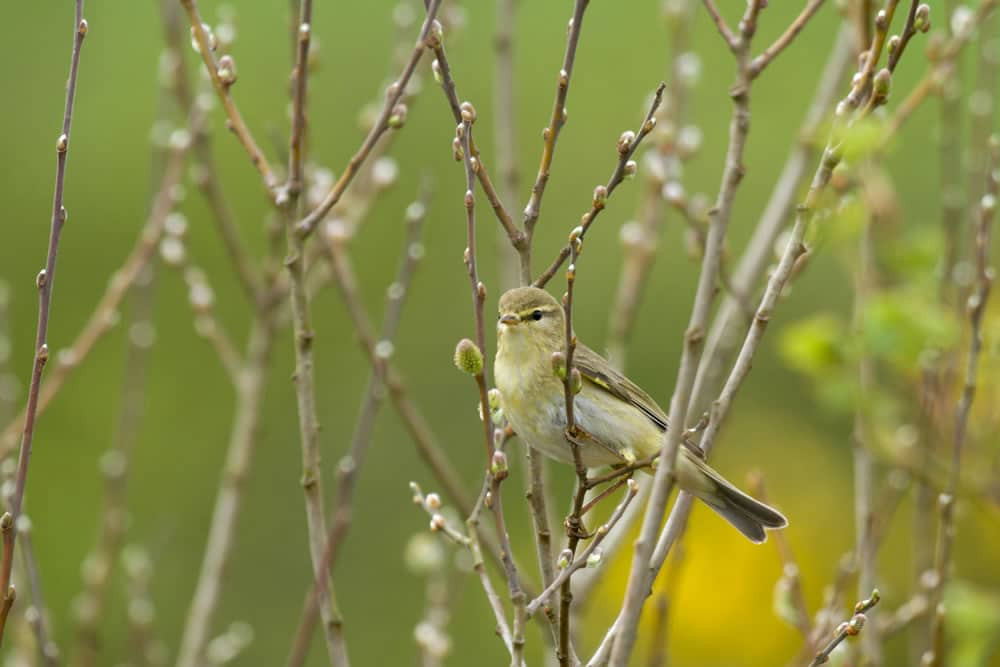
Willow Warbler – the lazy lyricist
Starting with a high pitch full of power and good intent, the Willow Warbler’s song gradually dips toward lower pitches, as though he’s forgotten the words or, quite honestly, would rather just sit and enjoy the sun. Willow Warblers are a summer migrant to the UK, returning to us from their winter escapades in sub-Saharan Africa. Their song is an indication that lazy summer days are around the corner, where, let’s face it, we would all quite like to just sit and enjoy the sun.
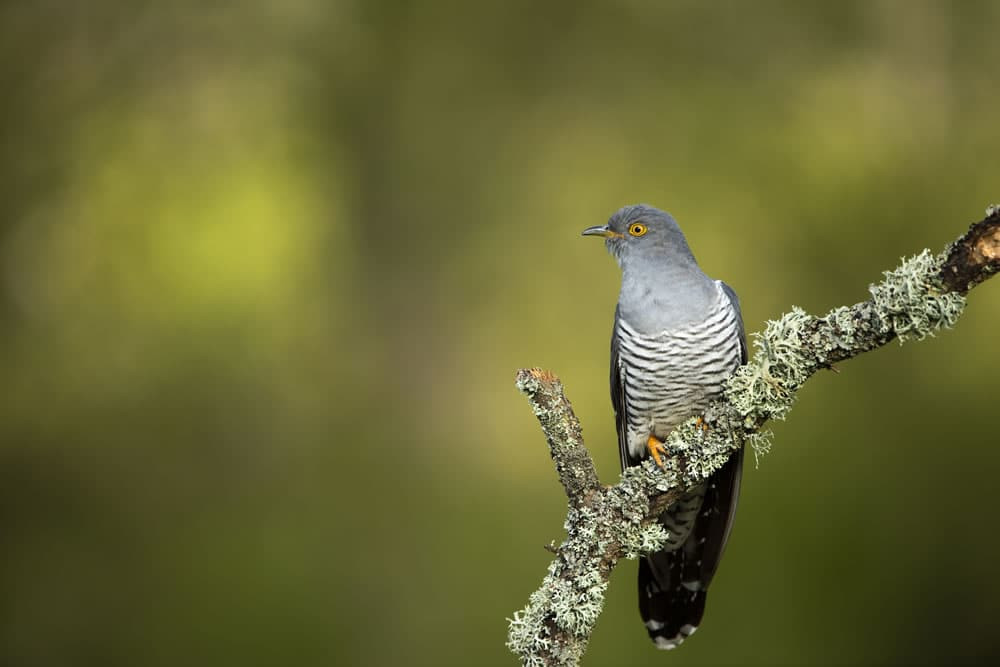
This month, take care in listening for the special contributors to the chorus; migrant birds which join us around May-time, including the onomatopoeically named Cuckoo, the fluty repeated song of the Pied Flycatcher, and the rhythmic quick trilling of the upland inhabiting Ring Ouzel.
The dawn chorus is something spectacular which we can all enjoy, no matter where we are. This irreplaceable morning melody connects us with nature and each other, even before the day begins – and until we can venture out to our favourite wild places once more.
Heather Devey is Visitor Development Officer at RSPB Haweswater. For more information on the RSPB’s work and events at Haweswater, visit wildhaweswater.co.uk, or follow them on Twitter at @WildHaweswater
Read Heather’s other blogs about floating animals and nocturnal animals in Cumbria.
From Red Squirrels to Peregrine Falcons, read about other wildlife to look out for around the Ullswater Valley and neighbouring Haweswater in this blog by Lee Schofield, Site Manager at RSPB Haweswater.